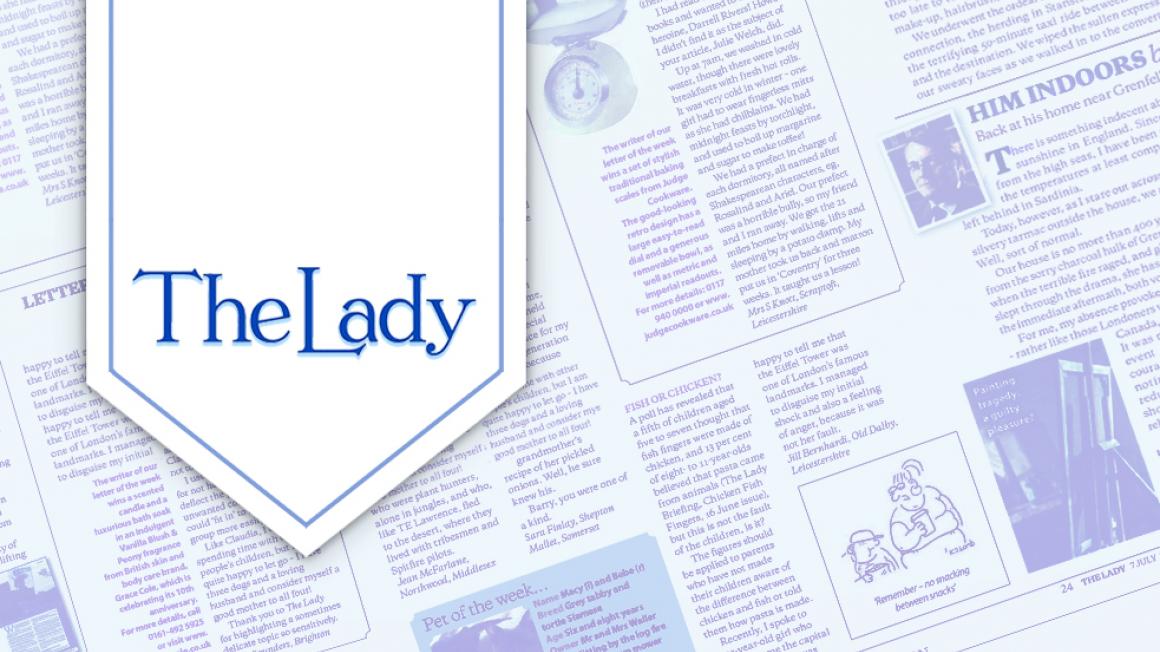The Lady Guide to Modern Manners: 18 October
The phrase King of England in the article How William Wooed Mrs Wales makes me so irate (13 September issue). Does the author not know that William will be King of Britain, which includes Scotland, Northern Ireland and Wales? Insults like this are enough to make me vote ‘yes’ for independence in the Scottish referendum, although I am still undecided.
Ella L MacDonald, Irvine
Dear Ella,
Explosive subject! I do understand your annoyance, and you are quite right to point out the error.
The correct style of the Queen is as follows: ‘Her Majesty Elizabeth the Second, by the Grace of God, of the United Kingdom of Great Britain and Northern Ireland, and Her other Realms and Territories, Queen, Head of the Commonwealth, Defender of the Faith.’ When present in certain other realms of the Commonwealth, she becomes someone else, for instance the Queen of Antigua.
At the time of Her Majesty’s accession attempts were made through the courts to prevent her from calling herself Elizabeth II in Scotland. There was, after all, no Elizabeth I of Scotland. But this came to nothing. The unfortunate fact is that, in everyday speak, no one refers to the Queen of Great Britain. Queen of England is a convenient shorthand, but of course excludes Scotland, Northern Ireland and Wales.
There will have to be changes, but perhaps not in this reign. The King/Queen of England thing can’t go on. We must be firm with the Palace to ensure that something is done in due course.
I do wonder, all the same, whether there isn’t a certain randomness to all this title business. In Downton, Maggie Smith advised the former chauffeur, now ‘upstairs’ through marriage but struggling socially, not to address a duchess as Your Grace, but as Duchess. ‘But I don’t call you “Countess”’, he protested. Maggie looked huffy for a moment, then explained: ‘Don’t expect any logic among the upper classes.’
Language, too, is arbitrary. Years ago the brilliant maverick, Brigid Brophy, forging into the debate about sexist terminology, pointed out that although there is ‘manager’ and ‘manageress’, there is no female form of ‘painter’, that a ‘conductress’ would be in charge of a bus not an orchestra, and that a male ‘governess’ is not a ‘governor’. In other words, language evolves in mysterious ways.
In the same way, although we say King/Queen of England, we never refer to the ‘English’ Royal family, it’s always the British Royal family.
Please send your questions to Thomas.blaikie@lady.co.uk or write to him at The Lady, 39-40 Bedford Street, London WC2E 9ER
WHAT TO DO ABOUT… YOUNG PEOPLE
Business leaders are complaining that new graduates have no idea of how to behave in the workplace. Specifically, they are shy and awkward, dress inappropriately and drink too much at office parties. Debrett’s has now been spurred into offering courses on ‘social intelligence’. For £1,000 or so, these juvenile difficulties can be solved.According to employers, young people focus too much on written exams at school and look too often at their mobile phones and computers. So they can’t spell or speak properly.
But haven’t we heard all this before? Why can’t employers get it into their heads that young people are young? Big surprise, they’re nervous and ill at ease. They’ve never written an office letter before. Maybe they’ll learn better if patient guidance replaces blistering criticism.
Besides, employers should be better informed. Schools do far more these days through group work, drama and class discussion to help children overcome shyness and develop awareness of the person they’re talking to.



